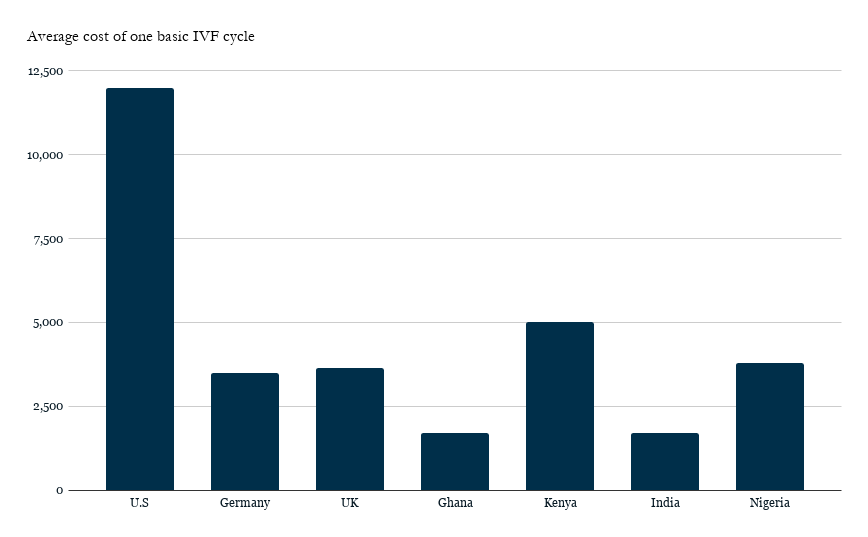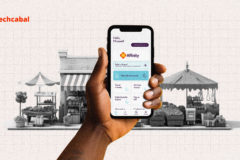Since the term was coined in 2016, femtech, a sub-sector in health technology dedicated to creating solutions that address female wellbeing continues to gain traction and attract VC funding globally. In Africa, however, the space is still very much in its budding phase. This segment is dedicated to telling stories of innovators, their solutions, the investors and challenges of the sector as it blooms in the continent.
A Hygeia HMO and Access Bank partnership is offering financing to families looking to explore in-vitro fertilisation (IVF) alternatives to childbearing with a catch. A 30% cash back on failed procedures.
Surprising as it may be, particularly for a region whose population is expected to double by 2050, in sub-Saharan Africa, one in three couples are infertile. Women are also often on the shorter end of the stick with the stigma arising from infertility in this part of the world.
Assisted Reproductive Technologies (ART) involve a range of fertility treatments including in-vitro fertilization, cryopreservation of gametes or embryos, and intracytoplasmic sperm injection (ICSI) that may or may not be combined with surrogacy (a third-party carrying the embryo to term).
IVF involves the external fertilization of egg with sperm (either from the intending parents or donors) and the implantation of a formed embryo in the uterus of the natural or surrogate mother. The procedure also involves additional techniques to increase chances of pregnancy from hyperstimulating the ovaries to generate multiple eggs to culturing the fertilised egg for some time before reinsertion into the woman’s body.
Because of cultural, religious and cost implications, IVF adoption in Nigeria and many parts of Africa is not very high. For one, certain denominations view technology innovation around child bearing as usurping the divine order of life. And there is an inordinate emphasis on women conceiving and birthing their babies naturally as a mark of authentic womanhood. Even a simple cesarean section can be looked upon with some stigma in this part of the world.
In 2013, a little over 25,000 IVF cycles were carried out across 13 countries on the continent. Accurate data is absent in Nigeria, but one of the leading ART clinics in the country, Nordica Fertility Center, says they’ve had success with over 2,500 babies and about 300-400 cycles are conducted annually in the country.
On average, 22% of IVF procedures are successful but age and other factors such as quality of donor egg or sperm can strongly influence success rates.
Hygeia HMO launched HyMama, its IVF health bundle, in 2018.
In partnership with Access Bank, women who belong to the bank’s W Community can receive financing of up to ₦1.5 million for a cycle of IVF treatment (or ₦4 million for a three cycle procedure). The HMO works with five fertility centers in the country namely: Lifelink Fertility Clinic, Nordica Fertility Centre, Medical ART Center, Lily-Paelon Memorial, Georges Memorial Medical Center.
If a procedure fails under the one-cycle plan, patients receive a 30% cashback into their account.
Women who seek help outside the country can also receive the dollar equivalent (US$3,900) of the financing which is repaid over a 24 month period at an annual rate of 14%.
The financing covers post-investigation, drugs, donor eggs and sperm cells if required. Pre-investigation cost, usually about ₦250,000 – ₦300,000 is covered by the patient. These preliminary tests usually determine what IVF modalities are better suited per individual.
While women in Access Bank’s W Community are eligible to apply, to reduce barriers to entry, spouses are also welcome to apply on behalf of their partners. The bank accesses eligibility based on income earnings. For salary earners, monthly income must not be less than ₦100,000 while for business owners whose businesses have been legally registered for at least a year prior, account statements are vetted to verify eligibility.
IVF treatments can be emotionally exhausting especially considering that success rates are often not commensurate with how much hole it sinks into the pockets of families who seek the treatment out.
The cost of one IVF cycle across the globe can range anywhere from US$1,700 to US$60,000 depending on what else the clinic can offer the patient. In the US, one cycle on average, costs US$12,000 without associated drugs (which can sometimes accrue an extra US$3,000 or more). In Germany, on average, a cycle cost US$3,500. In Kenya, an average cycle can cost up to US$5,000.

Femtech companies are also now weighing in to help women and men through their ART journeys.
Extend Fertility, an American femtech company, allows women to freeze their eggs. If they cannot stall time, they can at least prevent their eggs from the wiles of time. The company also offers IVF and embryo freezing for when patients want to get pregnant in the future.
Last year, the company raised US$15 million in a Series A funding round to expand its services.
FertilityIQ, another femtech company, aggregates data and the best resources for women looking to go the ART route so they are armed with the best information before they begin the process.
Africa is still slowly innovating to specifically address women’s health and reproductive needs and more avenues that address financing for these technologies, whether private or government led, will greatly determine how widespread their adoption becomes in the coming years.




















